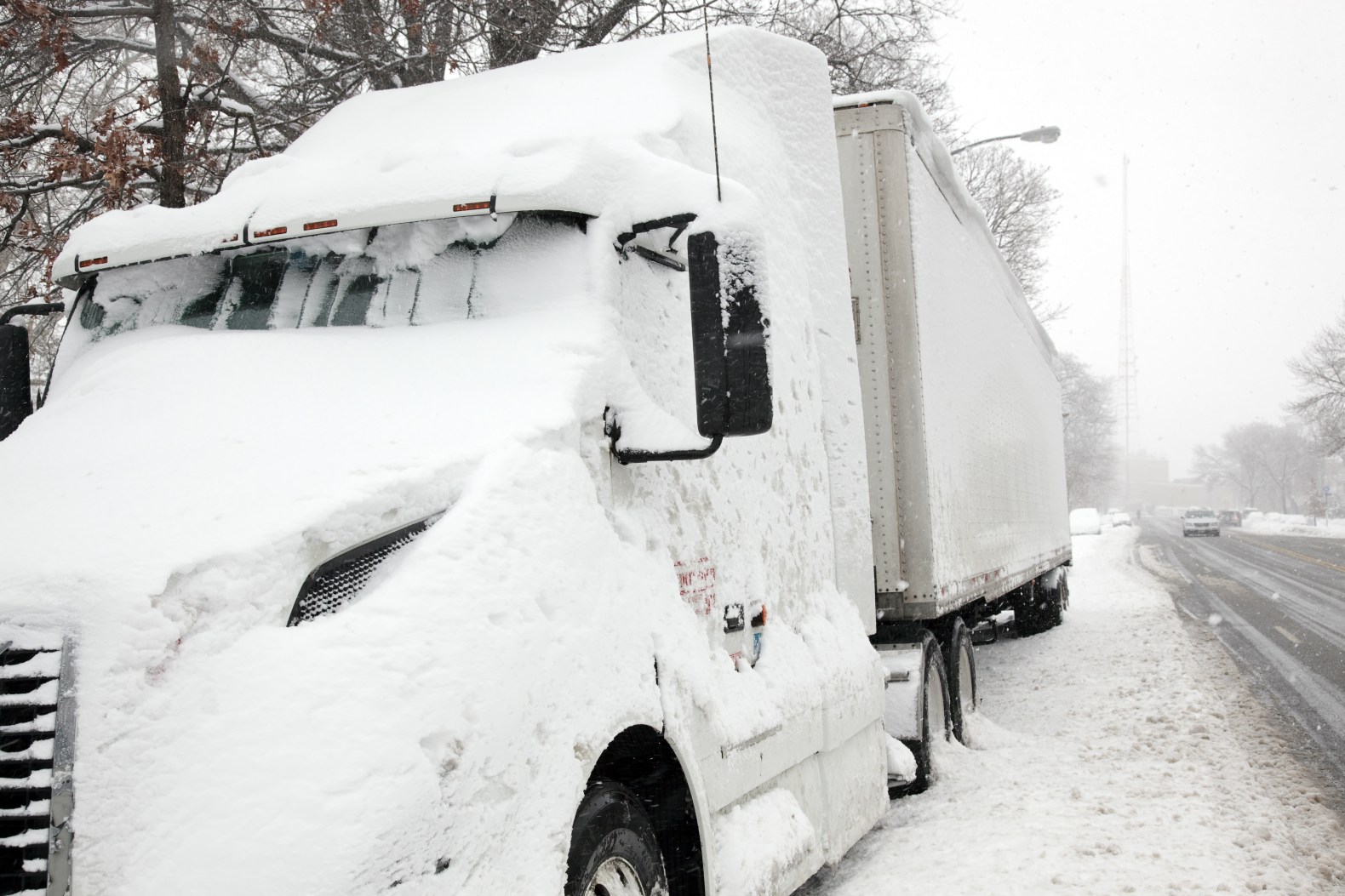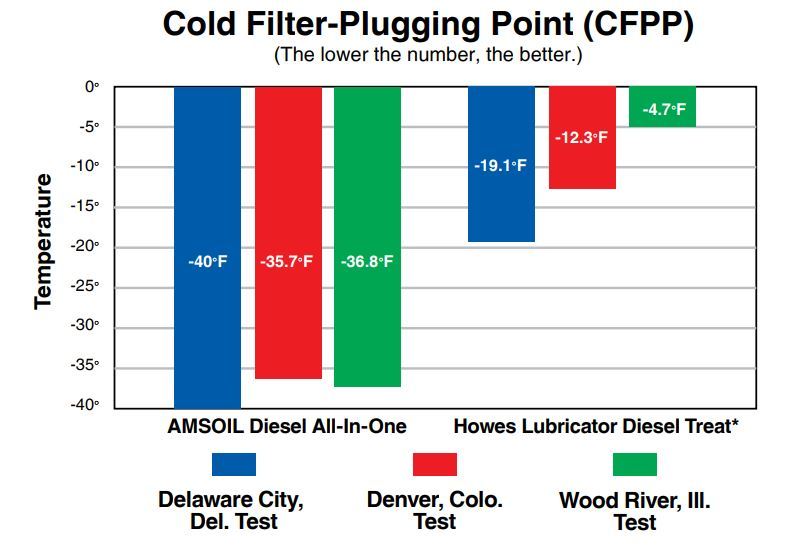How to Fix Diesel Fuel Gelling with Cold Flow Improvers
I don’t know about where you live, but winter in Minnesota hit pretty hard starting in November, and it seems Old Man Winter is fired up and settled in for a long, cold season. For those who love ice fishing, the cold temps make the ice safer, giving us additional opportunity.
That reminds me of a colleague who was sitting on the ice in Canada in late December at -40º. No shanty and no heat – just him, the ice and some intense ice-clearing action to keep the hole from freezing over.
When you pull your diesel pickup to the end of a plowed road and see “-40º” on the thermometer, it makes you wonder if the truck will start when you return from a day of fishing.
How to be prepared
I’m not much of a gambling man, so I make sure my toolbox contains two very important products to ensure I return home safe after every winter voyage.
- A set of jumper cables in case the batteries go dead.
- Spare bottles of AMSOIL Diesel All-in-One, in addition to the bottle I used to treat my fuel before leaving the fuel station.
The best motto in winter conditions is the one Boy Scouts learn at a young age: Be Prepared. The best preparation for winter conditions if you drive an oil burner (a.k.a. diesel) is to treat your fuel with cold-flow improvers every time you fill up. There is no better tried-and-true method to ensure frozen fuel doesn’t leave you stranded in the middle of nowhere.
What are cold flow improvers?
They’re a specific chemistry designed to target wax in diesel fuel and keep it in liquid form as the temperature drops. This chemistry basically allows the fuel to continue to flow as the temperature grows colder and colder. You may have heard the technical term “cloud point,” which refers to the temperature at which naturally occurring wax in diesel fuel begins to solidify and turn the normally translucent diesel fuel cloudy.
Or, perhaps you’ve heard the term “cold filter-plugging point,” which is the lowest temperature at which the fuel will flow through your fuel filter without plugging it. Cold flow improvers depress both of those values, allowing you to operate your oil burner at colder temperatures. In independent testing, AMSOIL Diesel All-In-One repeatedly flowed at temperatures up to 32ºF colder than Howes Lubricator Diesel Treat*. That is a substantial difference in performance when it matters most.
Question of the day:
When you buy fuel at the station, at what temperature will it still be suitable for use?
Good question? Sure is, because many stations don’t publish that information and are asking you to trust them. Trust is earned, my friend, and when the situation potentially leaves me stranded in freezing temps, I trust no one but myself and a good dose of cold flow improver.
Here’s a great example. Another colleague has a late ’90s Powerstroke. He bought fuel from a reputable, local fuel station in Superior, Wis. The temp plummeted to -32ºF and his diesel fuel gelled , leaving him no choice but to change filters and pour AMSOIL Diesel Recovery in his tank. That fuel from the reputable fuel station was supposed to be good down to -40º. Interesting, isn’t it. Now, if he would have proactively treated his fuel with cold flow improvers, he would have avoided the whole ordeal. A good learning lesson for us all.
High risk, no reward
Winter temperatures can be downright dangerous. Of all the ways to take a risk in life, I hate to think this would be one of them. Buy yourself some AMSOIL Diesel All-in-One and treat your fuel. It will take care of your fuel system and ensure when you turn the key you are off and running to your next destination.
Don’t get me wrong – while I support people who run towing businesses, let them help those who really need it. Instead, help yourself and treat your fuel!
*Based on independent testing in July 2017 of AMSOIL Diesel All-in-One and Howes Lubricator Diesel Treat, using diesel fuel representative of the US marketplace and Howes’ recommended treat ratio for above 0°F.








